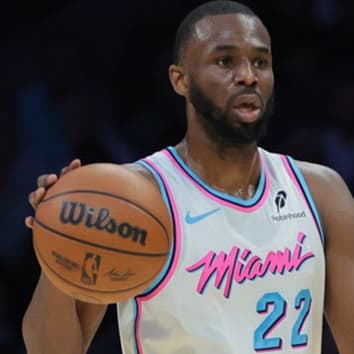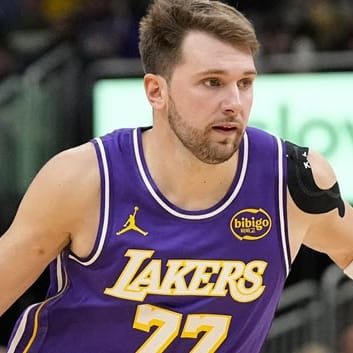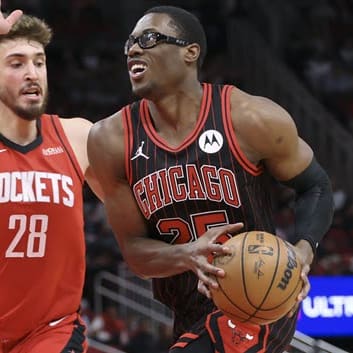He was supposed to dominate.
Upon immediate entrance into the league, Anthony Davis was going to average 20 and 10, block three shots a game and become the next Tim Duncan or Kevin Garnett. And while Davis has been more than solid - arguably the best rookie in the league - he hasn't hit those numbers.
But it's not completely his fault. And because of that, we could start to see his numbers rise over the final two-thirds of the season.
It's about to be a new year. That's something that provides hope, a clamor for change. That New Year is especially reflected in New Orleans with the return of Eric Gordon, a comeback that completely changes the makeup of this Hornets' team.
At this point, it's no secret Gordon wanted to be in Phoenix over the offseason. Unfortunately for him, the Pelicans - err, Hornets - matched the Suns' four-year, $58 million offer sheet and back to New Orleans he went. It's hard to say why Gordon was so set on Phoenix. An educated guess might be that the frail Indiana-native wanted to work with the Suns' training staff, pretty easily the most respected group of its variety in the league. Otherwise, is Phoenix really that much of a better basketball situation than New Orleans?
Now Gordon has returned to that better basketball environment. And part of the reason it could be so strong is the presence of Davis.
The rookie's season averages currently sit at 14.7
He was supposed to dominate.
Upon immediate entrance into the league, Anthony Davis was going to average 20 and 10, block three shots a game and become the next Tim Duncan or Kevin Garnett. And while Davis has been more than solid - arguably the best rookie in the league - he hasn't hit those numbers.
But it's not completely his fault. And because of that, we could start to see his numbers rise over the final two-thirds of the season.
It's about to be a new year. That's something that provides hope, a clamor for change. That New Year is especially reflected in New Orleans with the return of Eric Gordon, a comeback that completely changes the makeup of this Hornets' team.
At this point, it's no secret Gordon wanted to be in Phoenix over the offseason. Unfortunately for him, the Pelicans - err, Hornets - matched the Suns' four-year, $58 million offer sheet and back to New Orleans he went. It's hard to say why Gordon was so set on Phoenix. An educated guess might be that the frail Indiana-native wanted to work with the Suns' training staff, pretty easily the most respected group of its variety in the league. Otherwise, is Phoenix really that much of a better basketball situation than New Orleans?
Now Gordon has returned to that better basketball environment. And part of the reason it could be so strong is the presence of Davis.
The rookie's season averages currently sit at 14.7 points per game, 8.5 rebounds per game, 1.1 steals per game, and 1.9 blocks per game - more than respectable for a rookie getting 31.9 minutes a night. If it weren't for a couple nagging injuries - an ankle sprain and a concussion - Davis might be sitting in the driver's seat for Rookie of the Year.
His defensive versatility is there, but the offensive poo poo platter that we saw him serve night in and night out at Kentucky hasn't exactly translated in his first 17 NBA games played. Mostly, his shot has been pretty non-existent.
Davis spent his time on Team USA ooping the alleys he was getting from his Olympian teammates over the summer, but that's about all the offense he provided. Nothing else. He cut well, he dunked, and that was it.
In college, he actually moved with the ball. There would be times we'd see Davis on the perimeter, ball in hand against a quick perimeter defender, and he would take him to the hoop and score. He'd spot up from 17 feet and hit jumpers. But the NBA has seen more of the Olympic version of Davis than the collegiate one. And that's okay for now because he hasn't had the support group he needs.
Davis has been efficient when he gets to the hoop (shooting 64.9 percent at the rim), but once he steps out, he's been a non-factor. He is only 6-for-23 (26.1 percent) from 10-to-15 feet and is 10-for-36 (27.8 percent) from 16-to-23 feet. Essentially, when he's jump shooting, he's clanking.
The way he shot in college indicates Davis will actually improve those jump shooting numbers. Maybe he won't be an elite shooter this year (what 19-year-olds are?), but getting those figures over 30 percent should be realistic.
Meanwhile, Davis is a pick-and-roll player playing without a true pick-and-roll ball handler. He has been one of the best roll men in the NBA this season, averaging 1.12 points per possession when rolling to the hoop off a screen. That ranks him 21st in the NBA. And that's playing with Brian Roberts and Austin Rivers, who as Kevin Pelton wrote last week, is quite literally having one of the worst seasons in the history of the Nepotism Basketball Association - sorry, National Basketball Association.
But hey, Eric Gordon is back! And while Gordon isn't a point guard and isn't a brilliant pick-and-roll player, he is still perfectly capable. He's someone that the offense is going to run through and when Austin Rivers is no longer playing 28 minutes a night, it's probably a good thing for the rest of the players on the court. As good as Davis has been on the pick-and-roll this season, he's going to get better playing consistently with more competent ball handlers. When Gordon has the ball, defenses have to respect his skills. They won't be able to concentrate solely on swarming Davis once he heads to the paint.
Davis is already one of the best cutters, pick-and-roll players, and offensive rebounders in the league and having Gordon there will surely be a help. Now just wait for him to get that jumper down. That's when the 20 & 10s will come.
Fred Katz is an NBA writer for RotoWire. Contact him on Twitter at @



































